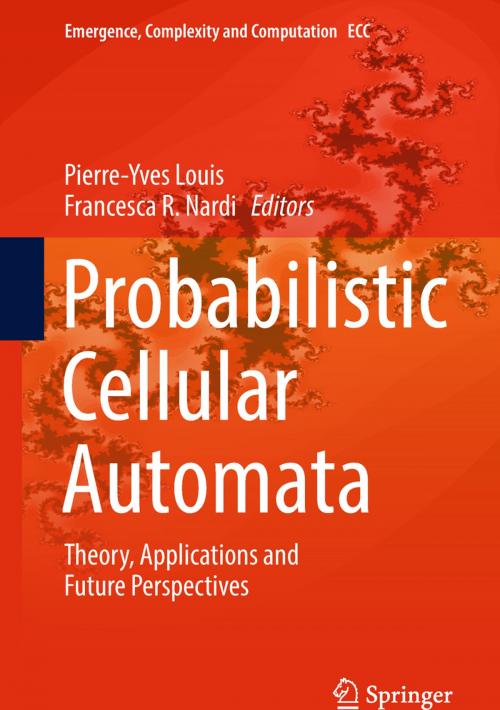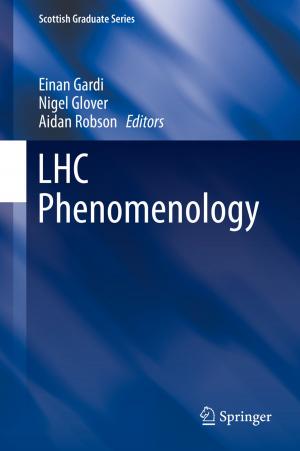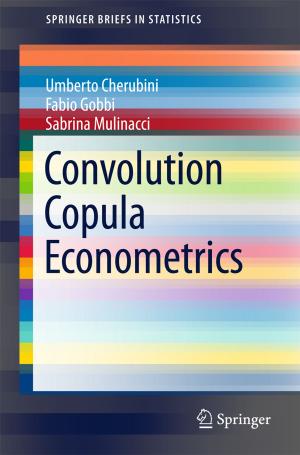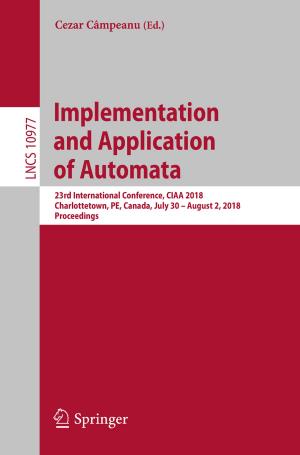Probabilistic Cellular Automata
Theory, Applications and Future Perspectives
Nonfiction, Science & Nature, Mathematics, Statistics, Technology| Author: | ISBN: | 9783319655581 | |
| Publisher: | Springer International Publishing | Publication: | February 21, 2018 |
| Imprint: | Springer | Language: | English |
| Author: | |
| ISBN: | 9783319655581 |
| Publisher: | Springer International Publishing |
| Publication: | February 21, 2018 |
| Imprint: | Springer |
| Language: | English |
This book explores Probabilistic Cellular Automata (PCA) from the perspectives of statistical mechanics, probability theory, computational biology and computer science. PCA are extensions of the well-known Cellular Automata models of complex systems, characterized by random updating rules. Thanks to their probabilistic component, PCA offer flexible computing tools for complex numerical constructions, and realistic simulation tools for phenomena driven by interactions among a large number of neighboring structures. PCA are currently being used in various fields, ranging from pure probability to the social sciences and including a wealth of scientific and technological applications. This situation has produced a highly diversified pool of theoreticians, developers and practitioners whose interaction is highly desirable but can be hampered by differences in jargon and focus. This book – just as the workshop on which it is based – is an attempt to overcome these difference and foster interest among newcomers and interaction between practitioners from different fields. It is not intended as a treatise, but rather as a gentle introduction to the role and relevance of PCA technology, illustrated with a number of applications in probability, statistical mechanics, computer science, the natural sciences and dynamical systems. As such, it will be of interest to students and non-specialists looking to enter the field and to explore its challenges and open issues.
This book explores Probabilistic Cellular Automata (PCA) from the perspectives of statistical mechanics, probability theory, computational biology and computer science. PCA are extensions of the well-known Cellular Automata models of complex systems, characterized by random updating rules. Thanks to their probabilistic component, PCA offer flexible computing tools for complex numerical constructions, and realistic simulation tools for phenomena driven by interactions among a large number of neighboring structures. PCA are currently being used in various fields, ranging from pure probability to the social sciences and including a wealth of scientific and technological applications. This situation has produced a highly diversified pool of theoreticians, developers and practitioners whose interaction is highly desirable but can be hampered by differences in jargon and focus. This book – just as the workshop on which it is based – is an attempt to overcome these difference and foster interest among newcomers and interaction between practitioners from different fields. It is not intended as a treatise, but rather as a gentle introduction to the role and relevance of PCA technology, illustrated with a number of applications in probability, statistical mechanics, computer science, the natural sciences and dynamical systems. As such, it will be of interest to students and non-specialists looking to enter the field and to explore its challenges and open issues.















